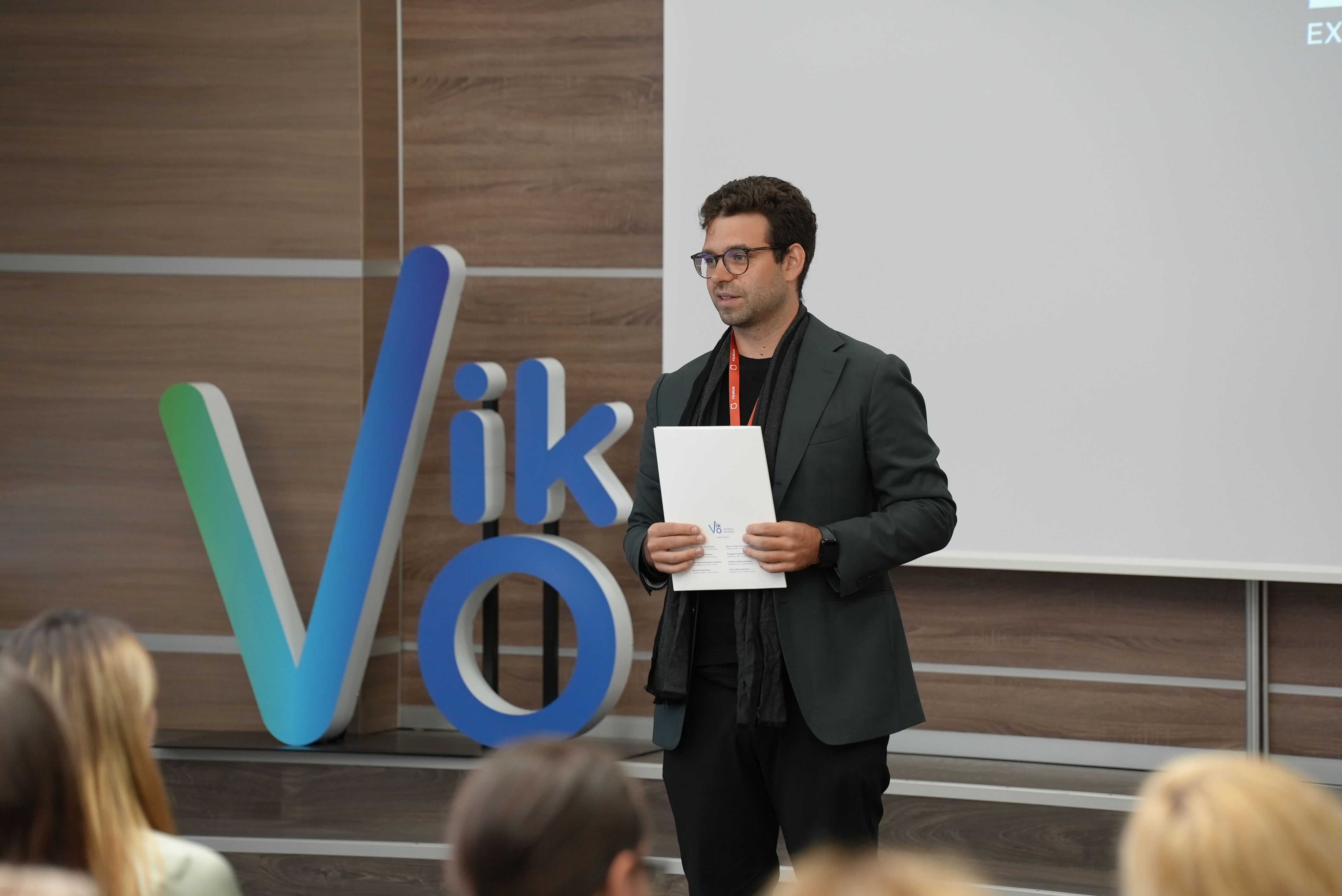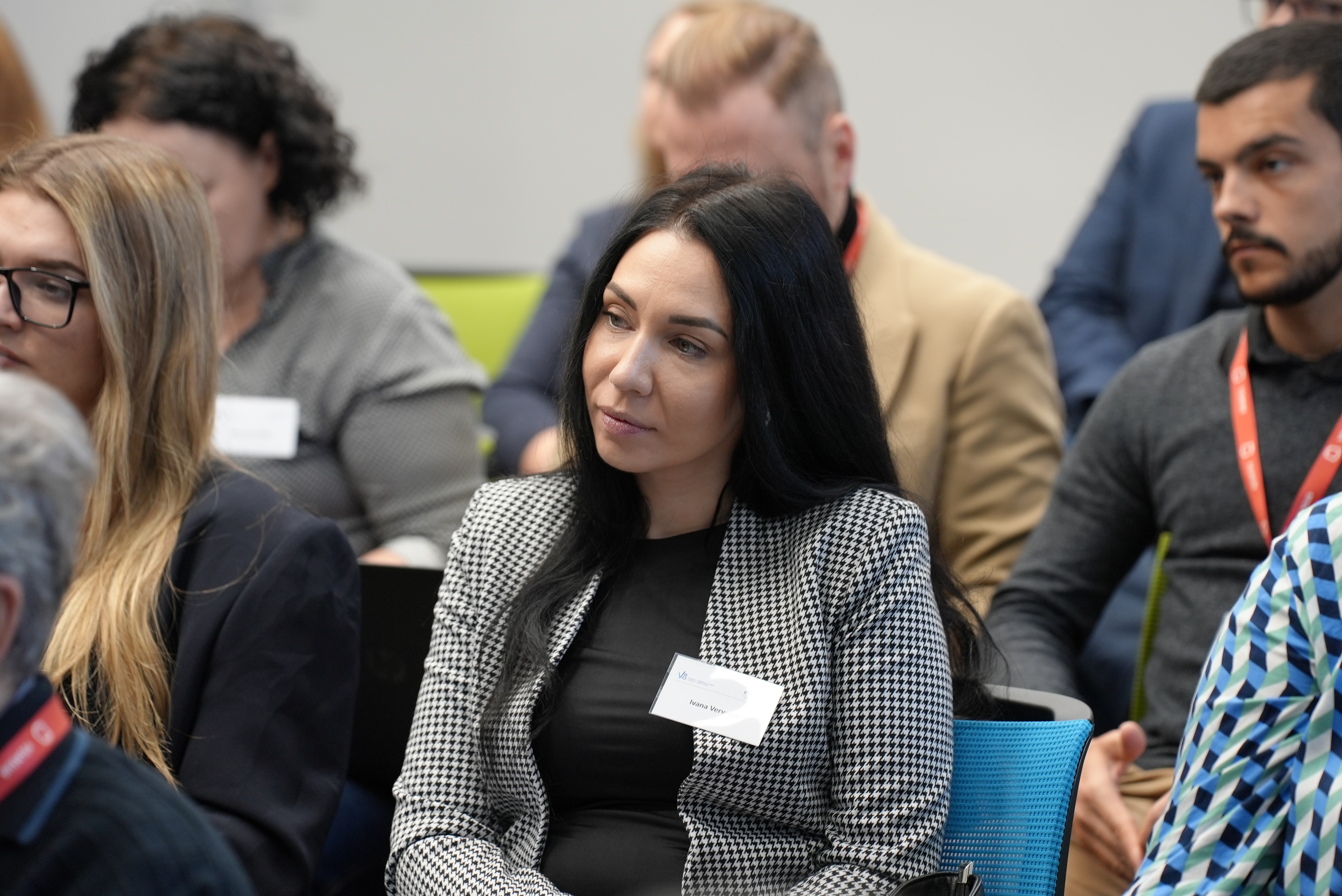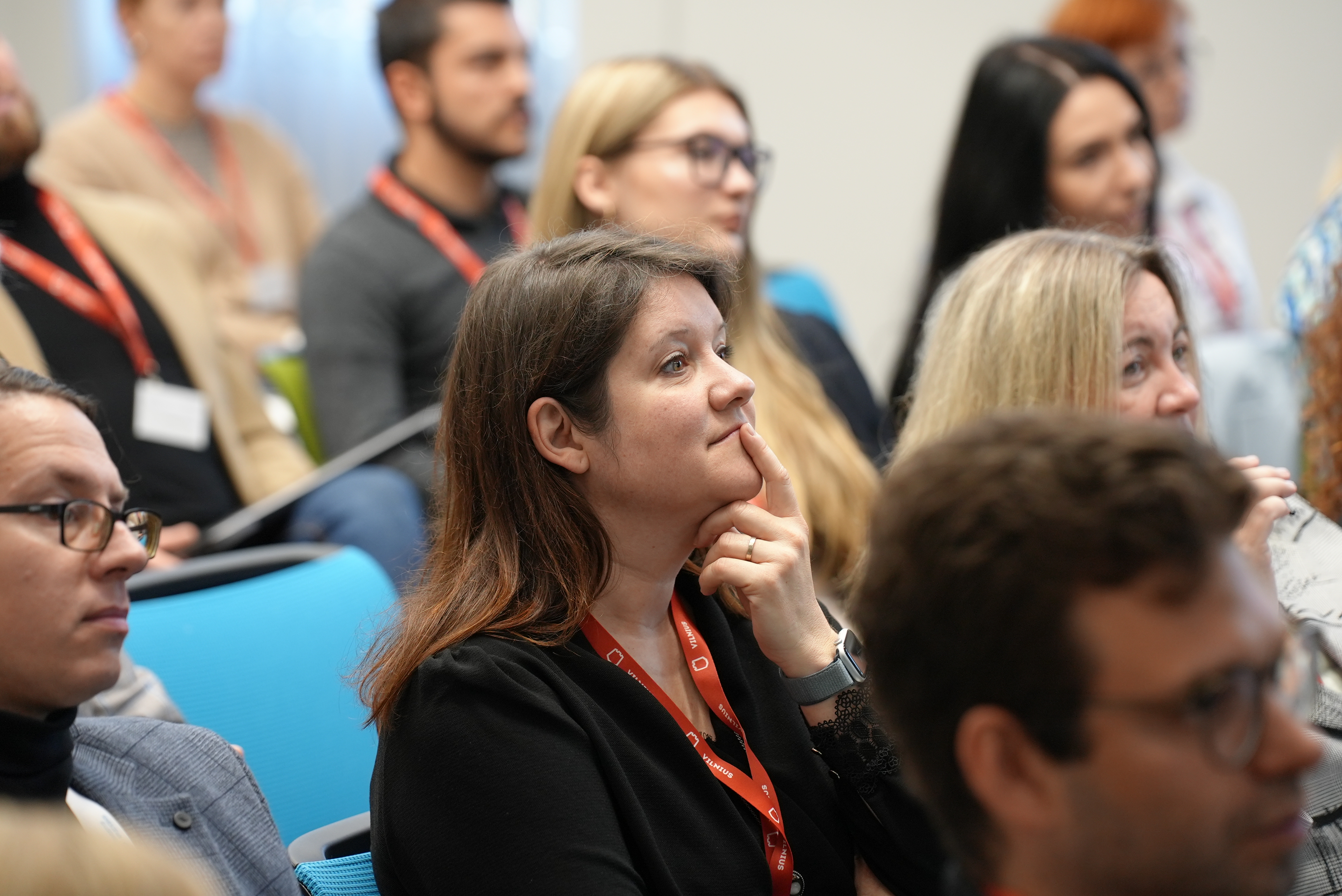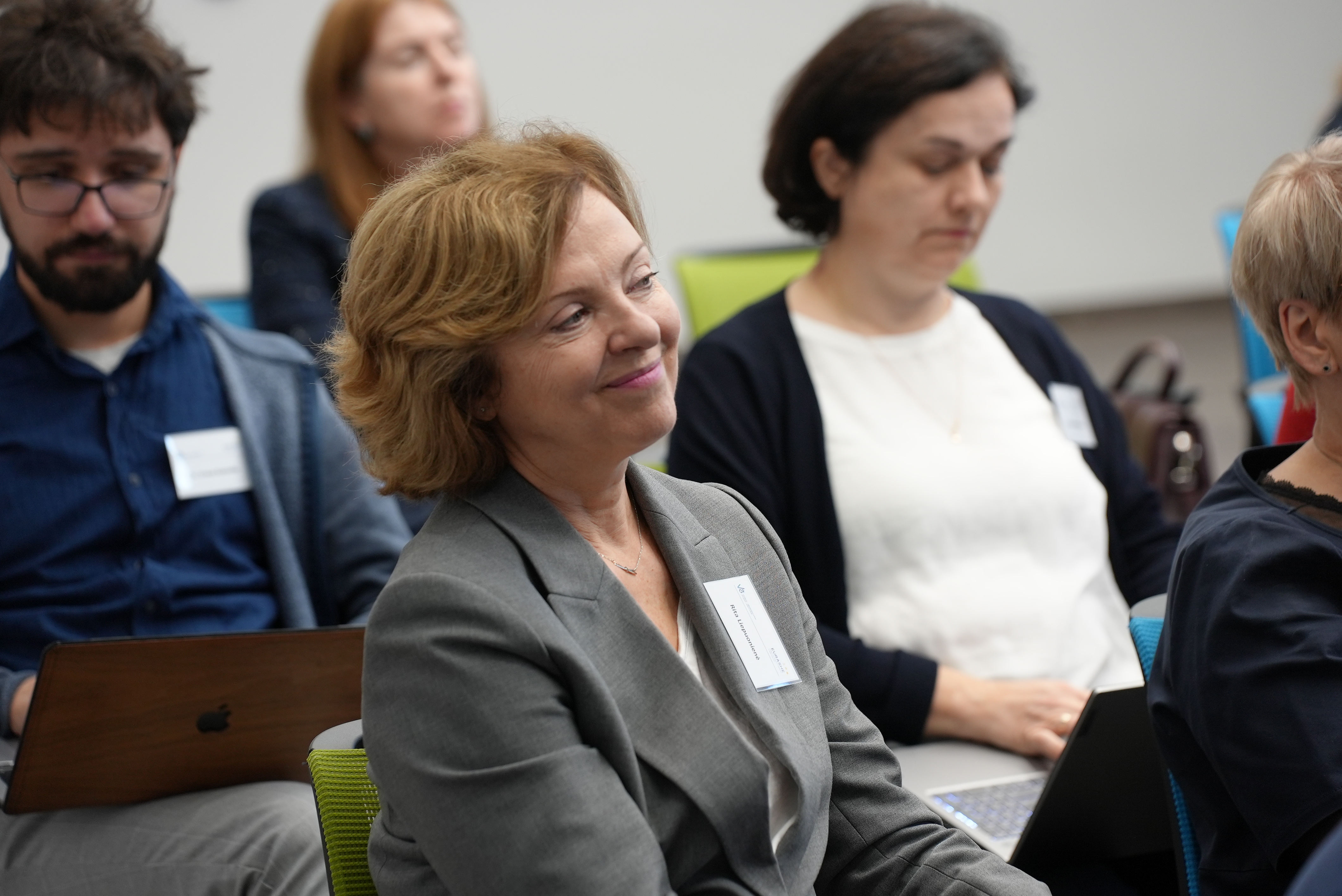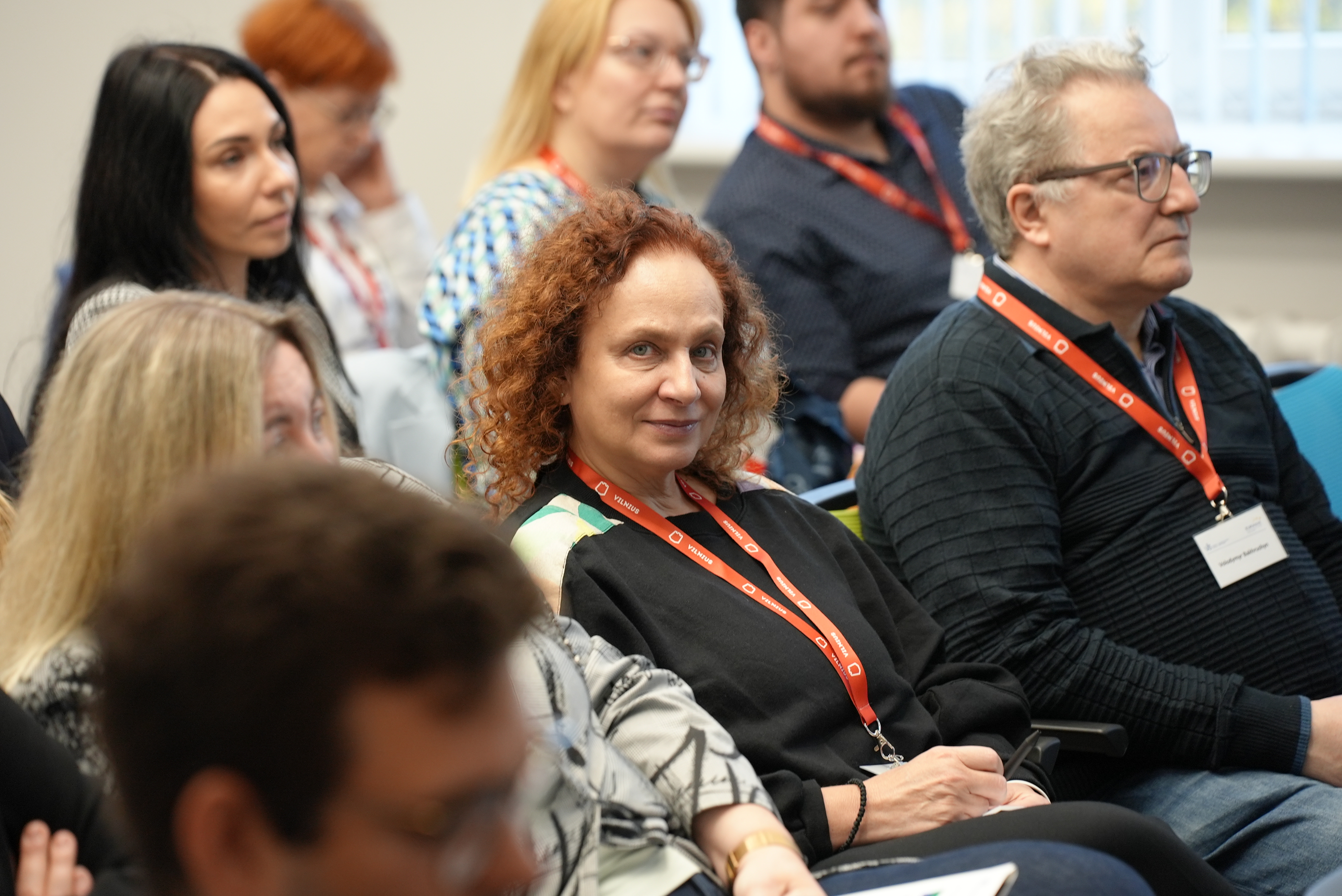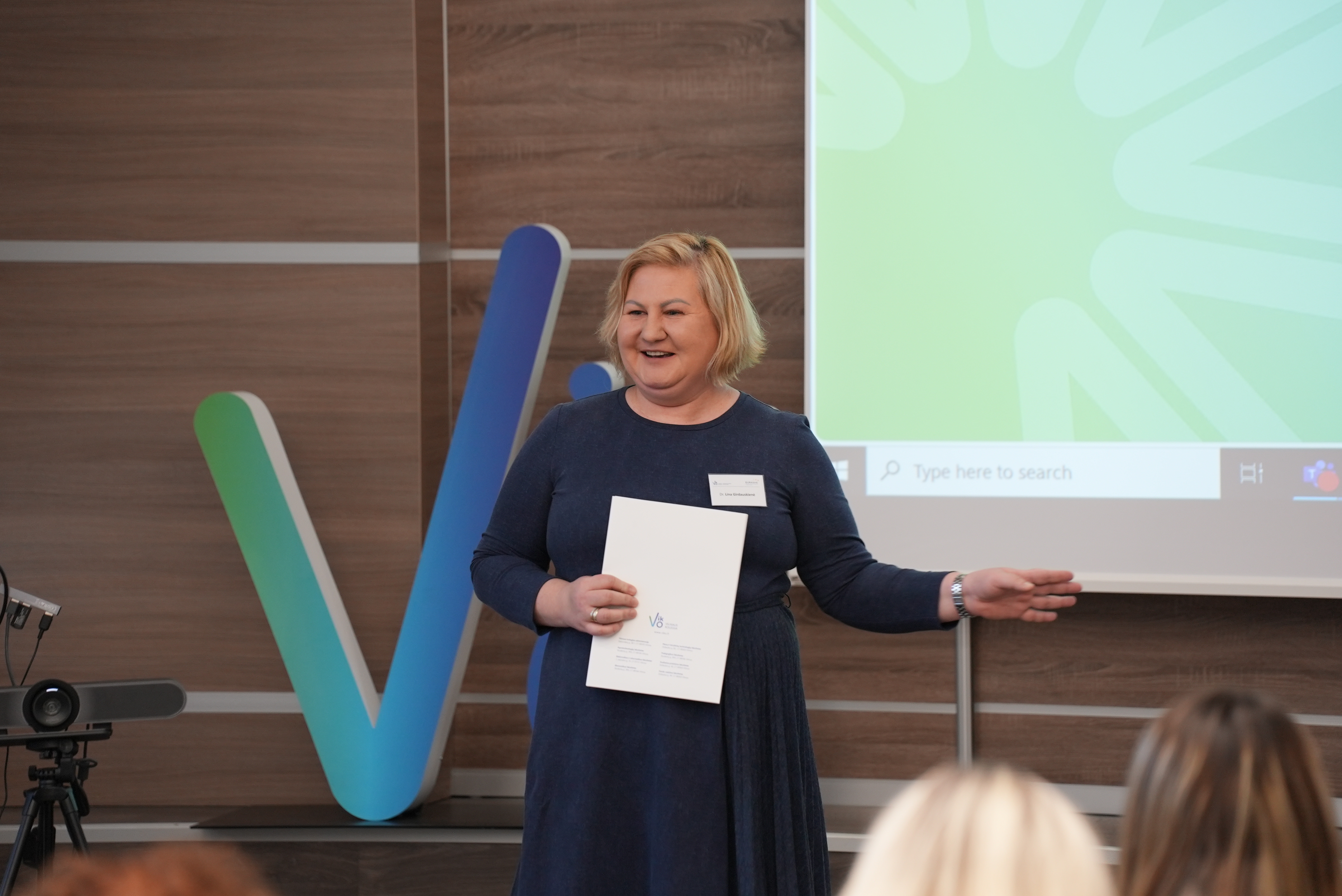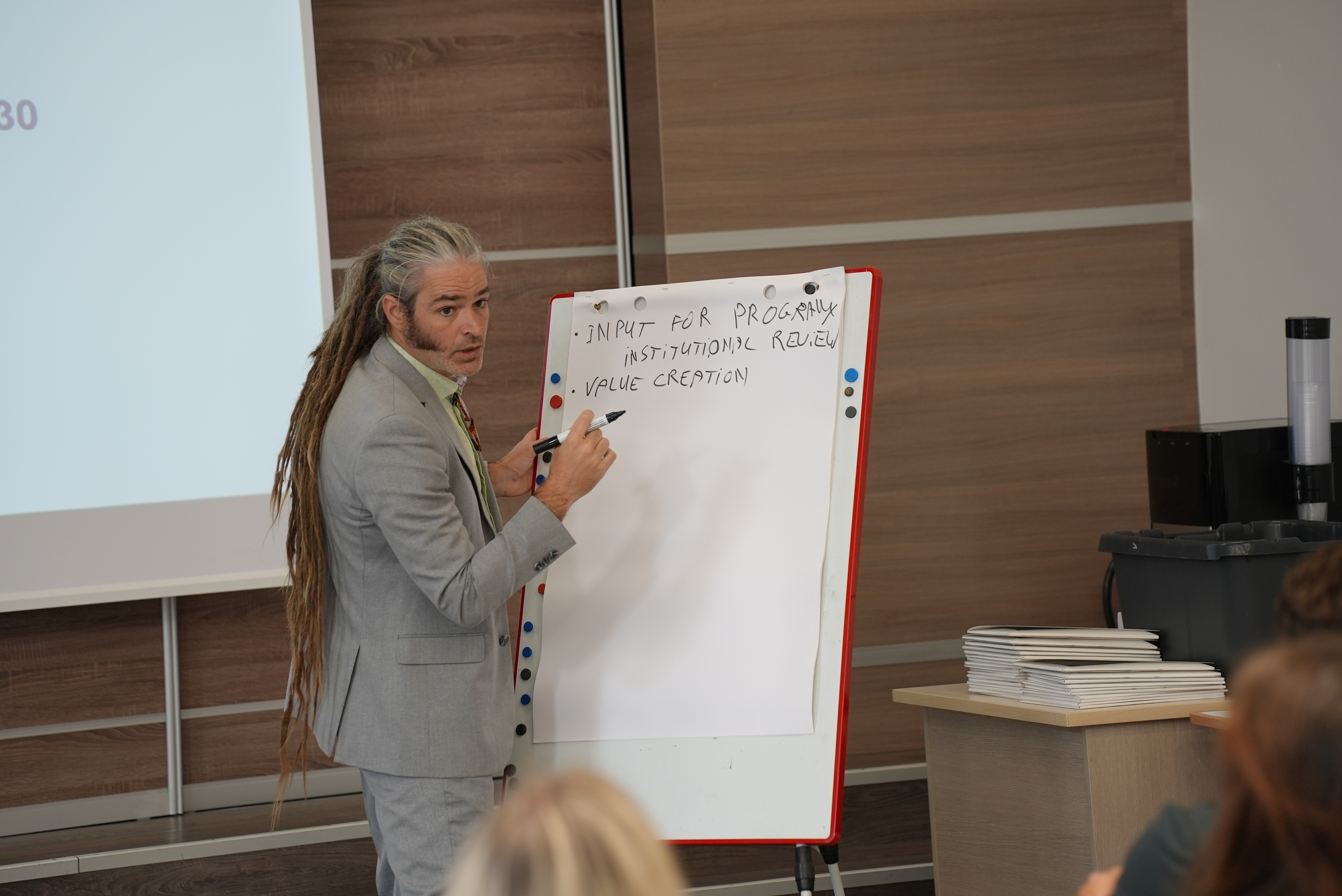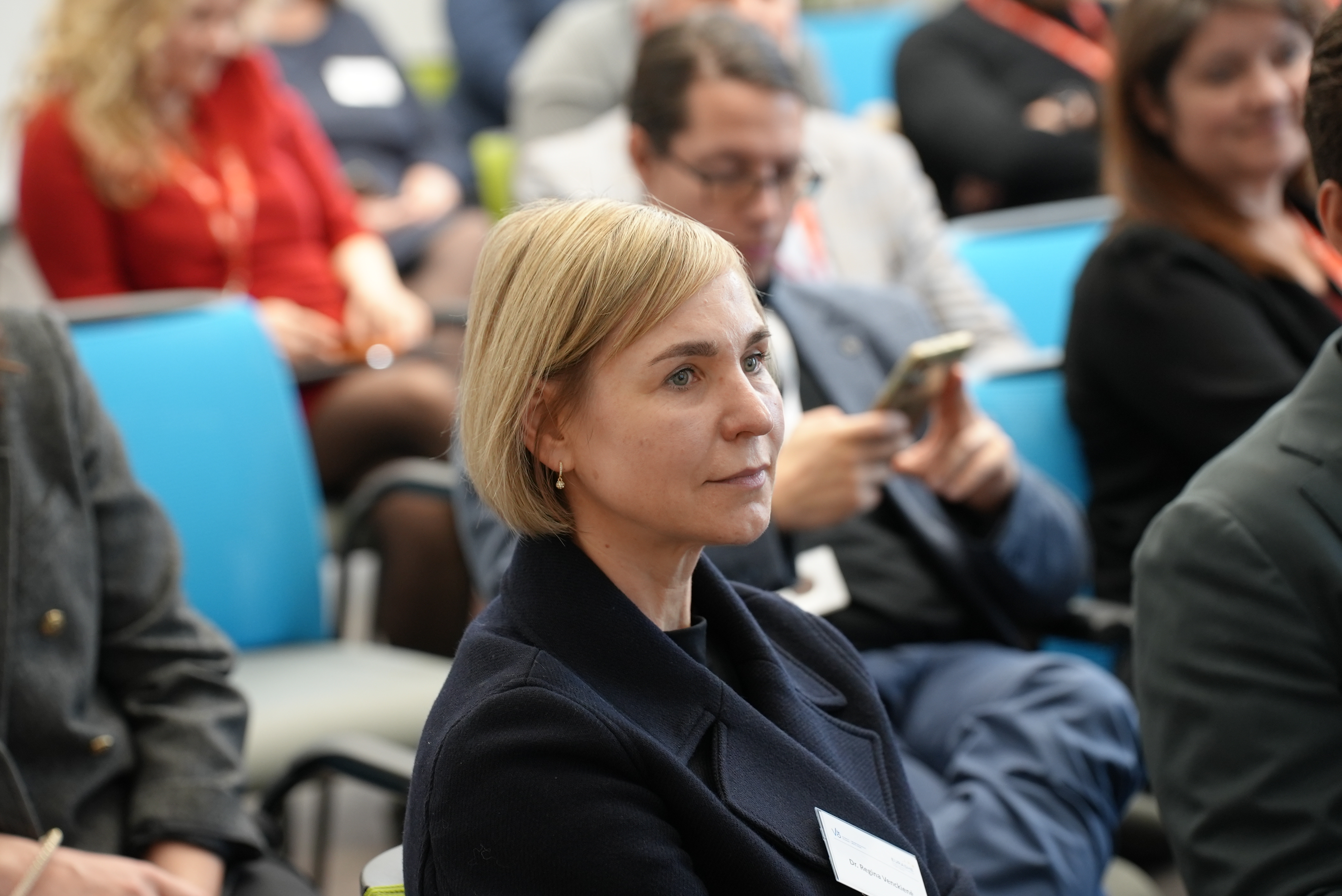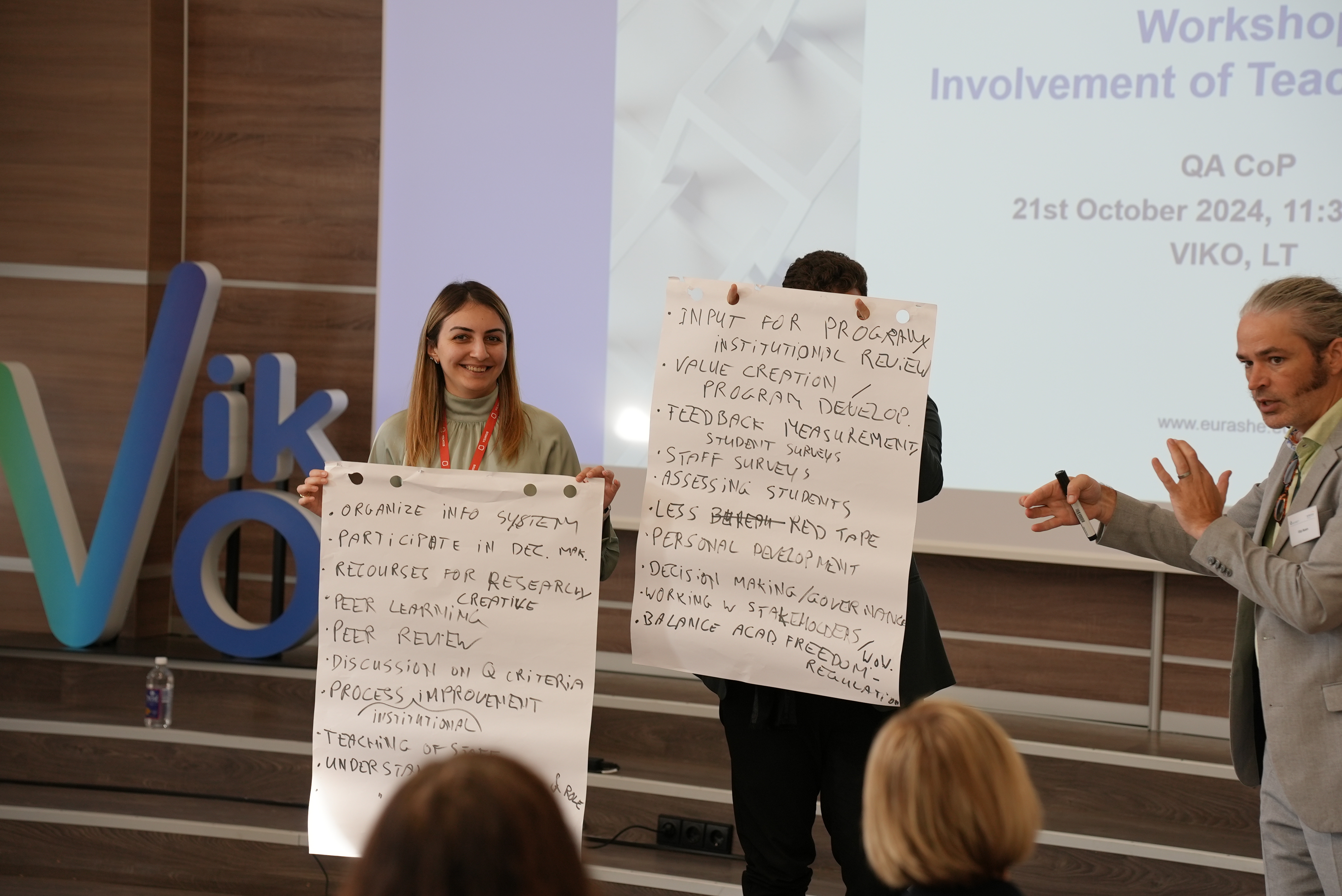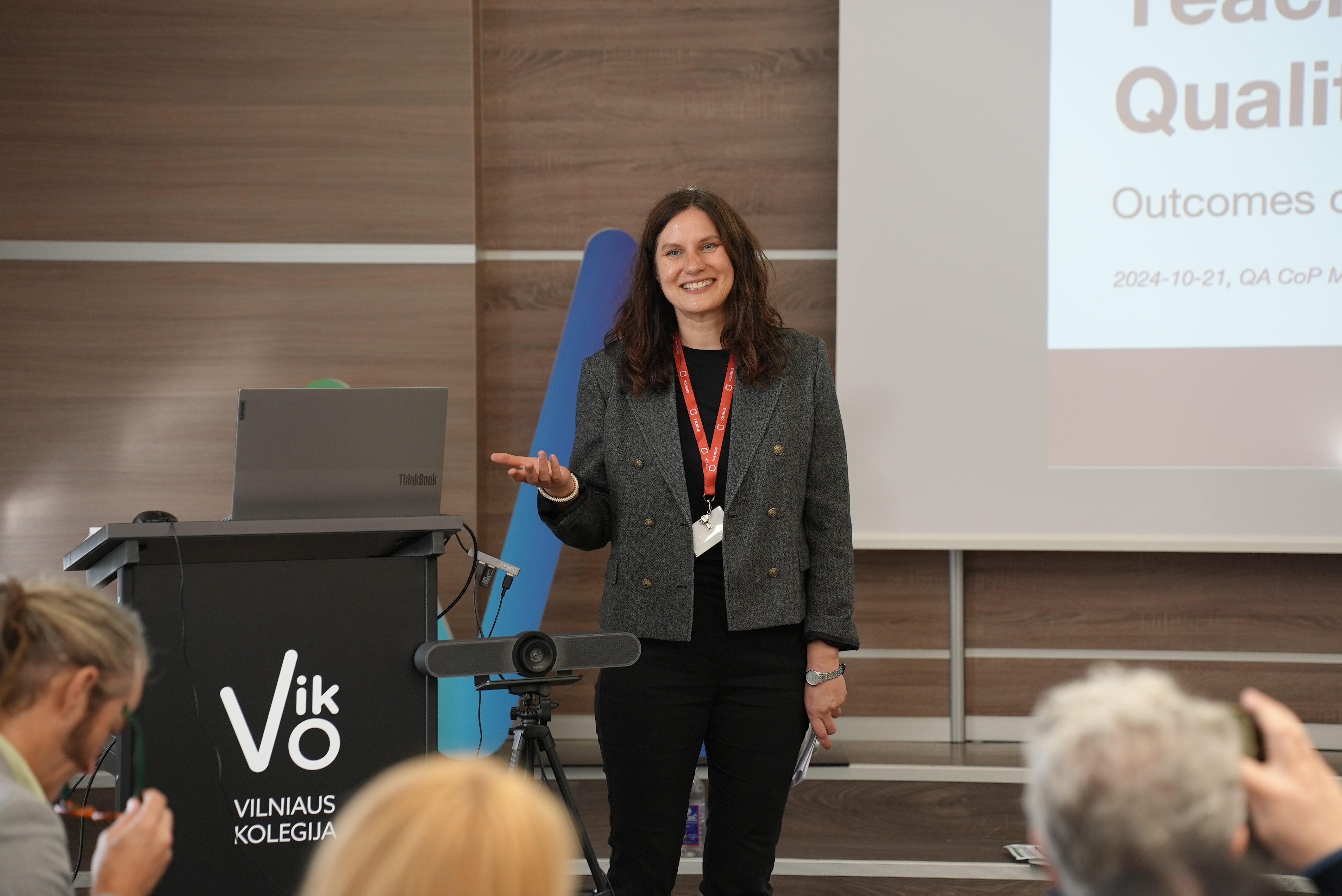Changes in European Higher Education and the Introduction of Innovations in the Field of Study Quality Discussed at VIKO
On October 21-22, a meeting of the Core Group of the Quality Assurance Community of Practice of the European Association of Institutions in Higher Education (EURASHE) took place at Vilniaus Kolegija/Higher Education Institution (VIKO). The Quality Assurance Group brought together staff from European higher education institutions, policymakers, and experts interested in quality assurance. The activities of this group contribute to the development of quality assurance within the European Higher Education Area, and the dissemination of their work occurs at European quality forums, conferences, and projects organized by EURASHE.
Fourteen members and experts from the Quality Assurance Group participated in this meeting, representing various European higher education institutions and other educational organizations from the Netherlands, Cyprus, Ukraine, the Czech Republic, Belgium, Croatia, Kosovo, and others. The visiting guests, along with representatives from VIKO’s faculties and central administration, engaged in discussions and shared insights on the involvement of lecturers in quality assurance, addressed the challenges they face in this process, considered opportunities for closer and clearer cooperation between higher education institutions and lecturers, and exchanged experiences on ensuring the quality of studies. While exploring the issue of improving lecturers’ competencies, the participants tried out virtual tools that not only enhanced their didactic skills but also motivated them to implement these immediately in the study process.
According to the coordinator of this meeting, Dr. Regina Venckienė, head of the Study Quality Department at VIKO, it is encouraging that “the EURASHE experts who participated in the meeting presented the conclusions of several projects, highlighting these pressing issues in study quality: the latest developments in European higher education, the implementation of innovations in the field of study quality, the ability to quickly respond to labor market changes, creating favorable conditions in higher education institutions for applying common European quality standards, and considering and defining revisions to European quality documents. This meeting is also important for the Vilnius College community, as our lecturers, in discussions with EURASHE experts, addressed the challenges of applying common quality standards to ensure the quality of study fields, and explored the influence of constantly changing societal and market dynamics on not only the content of study fields and programmes but also the development of lecturers’ competencies.”
Levente Varga, a representative of the European Students’ Union, shared the perspective of students, as key stakeholders, on the Bologna Process, which aims to ensure consistency across European higher education systems, facilitate student mobility, and make higher education more inclusive, accessible, and competitive.
